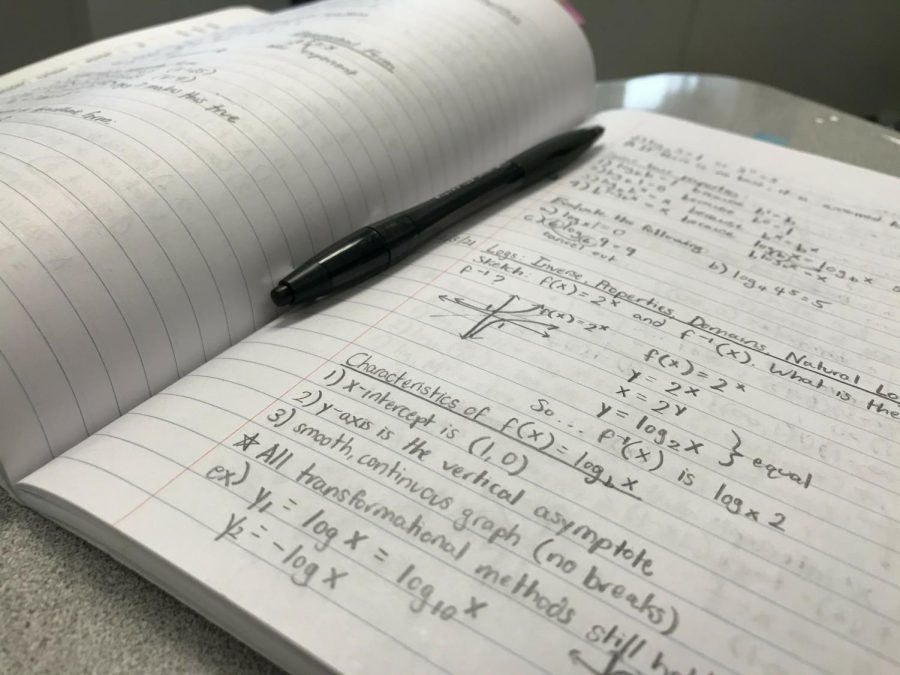Students React to the Cancellation of Midterms
Photo by Trisha Yu
This year, Nanuet High School midterms have again been postponed for the benefit of student mental health during various periods of change and transition.
For many years, midterm week in January has been a time of concentrated studying, as well as a source of trepidation for students. However, because of the pandemic for the past two years, the majority of current students have not had the chance to take such an exam.
With midterms cancelled, the weight of scoring for each quarter and the final have been adjusted. Yet, the value of reviewing what one has learned still remains important for the future. Of course, different academic subjects have different checkpoints for learning, and because of that, different teachers have different perspectives on the value of reviewing what students know.
For classes that require a lot of application of concepts, such as math and science, midterms have served as a way for students and teachers to have a “checkpoint” for their knowledge. As a result, in the absence of a midterm, students are strongly suggested to take initiative for themselves to review the skills they know for their own benefit on future exams, according to math teacher Mr. Christopher Campanella.
“Revisiting and studying learned material and concepts at the mid-year and at the end of the year go a long way into putting a student’s new knowledge into their long-term memory,” says Mr. Campanella, who teaches algebra and calculus. “We all want students to retain knowledge not just for a few weeks during a unit of study, but for the long term.”
For other skill-based courses like English, students already do in class everyday what is expected of them on official assessments.
“From the perspective of an English teacher, exams do not really alter the way students learn,” says Mr. Mark Salerno. “These are assessments that test the ability to read, write, and think critically: skills that are practiced continually from 9th grade onward.”
Either way, as long as students take some level of responsibility during their day-to-day classwork, they should expect to stay prepared for future cumulatives.
As for the cancellation of the midterms, students have a lot to say on both its effect on their studying and how they will prepare for the future.
“I feel very relieved that the actual midterms were cancelled,” says Abby Daly, a junior. “Although many of my classes are still giving some type of midterm [or cumulative assessment], they are not all the same week and will most likely be shorter. I think it was a mostly positive decision because many students recently have been dealing with quarantining and even getting sick themselves.”
Some, like Maren Sabino, a freshman, have expressed some level of concern in having never taken a midterm during their high school career.
“I’ve never actually taken a midterm before, nor has the rest of my grade. In fact, we’ve never taken a final either,” says Sabino. “The only experience I have so far with a test assessing cumulative knowledge is a quarter cumulative in Living Environment Honors. We, as a grade, are in a pretty tough spot.”
Considering that the underclassmen have also never taken a midterm, it can appear a daunting task for how they will manage finals, as well as midterms, in later years. However, Isabel Gallegos, a sophomore, has expressed her determination to not let feelings of anxiety over future exams hinder her personal academic improvement.
“For now, I’m trying to stay positive and open-minded, and just keep striving in my academics like I usually do,” says Gallegos. “I know that stressing out isn’t going to make things any better, so we just have to put our best efforts out there and see what happens next!”
Many of these students have also expressed a willingness for their teachers to help them look ahead to the future, both in regards to normal exams and larger assessments.
“I really think that giving us more tried-and-true study methods will be super helpful, especially in sorting through those anxious feelings of being lost and not knowing how to prepare [in the future],” says Gallegos.
Sabino has an additional idea.
“Also, I think one suggestion I have is to go over at least once all the cumulative knowledge that we’ll need to have,” Sabino adds. “That’s because, again, we freshmen have never had this experience.”
Ultimately, many students still see this change as valuable for their well-being during tumultuous times, as they can catch up and adapt to whatever life throws at them without the added burden of a large cumulative exam.
It is challenging for students to catch up and comprehend the content they missed, while also juggling the stress of midterms, according to Daly.
“No one wants to worry about this while not feeling at their own hundred percent,” she said. “I think this decision was for the best, and now the teachers can go at their own pace if they decide to give their own test.”
